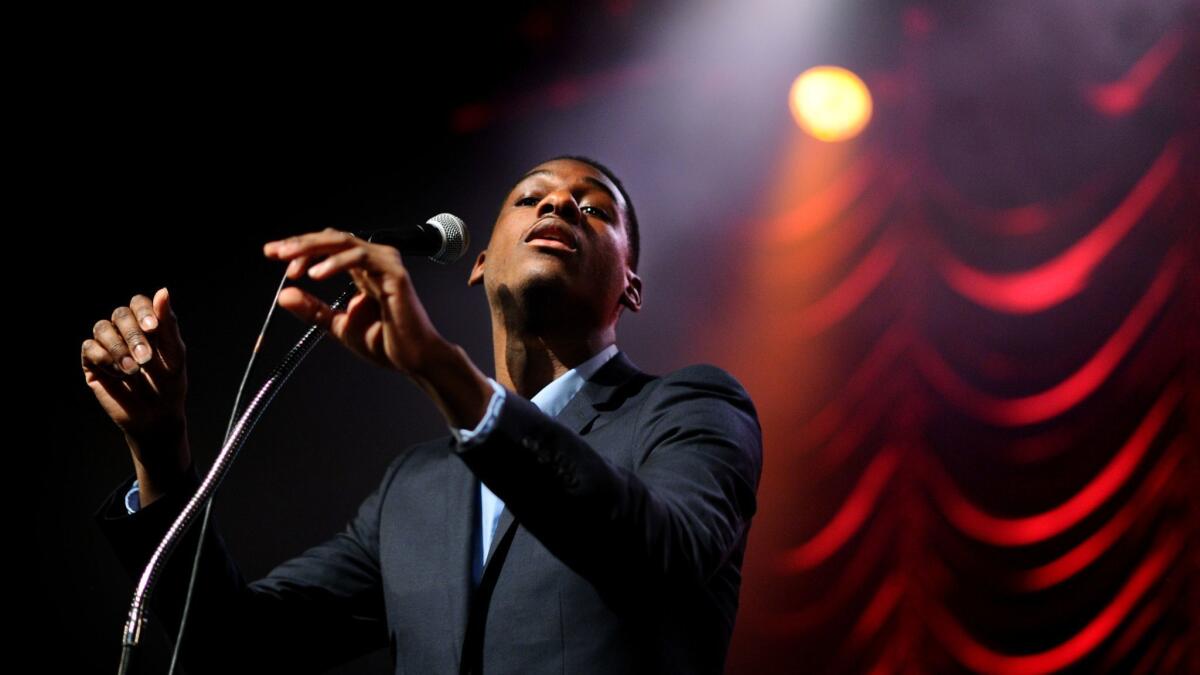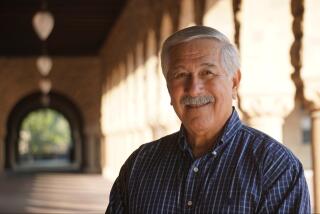California Sounds: 5 essential songs of anti-racism

- Share via
After outrage over the police killing of George Floyd drove citizens into the streets for mass protests, a number of spontaneous musical eruptions have helped define the moment.
The viral video showing a handcuffed woman protesting her situation with the rhythmic refrain “You about to lose yo job” has moved from righteous meme to on-the-streets declaration. Compton rapper YG dropped “FTP,” his f-bomb-driven indictment against a racist justice system. Crenshaw-raised producer-musician Terrace Martin teamed with saxophonist Kamasi Washington and others for “Pig Feet,” a fast-paced indictment of systemic oppression.
Terrace Martin’s “Pig Feet” was recorded in the last week and features Kamasi Washington, Denzel Curry, G Perico and Daylyt.
If history is any guide, these of-the-moment outbursts will help define 2020 and serve as memory markers for decades to come. Future scholars searching for context, though, would be advised to expand their search terms. A series of bellwether songs in the past half-decade — to say nothing of the hundreds of rhymed couplets in rap tracks — have come out of Southern California that explore issues of race and power in America. Find five essentials below.
“Sweeter,” Leon Bridges ft. Terrace Martin (Columbia)

The Fort Worth, Texas -raised R&B singer and producer Leon Bridges teamed with a handful of Angelenos including Martin, songwriter Dan Wilson and producer Ricky Reed on this spellbinding and heartbreaking indictment of a system that denies equal opportunity for all. Bridges, who intended the track for a future album but was moved by Floyd’s death and this protest moment to release “Sweeter” on Monday, voices his frustration from a contemplative, and sorrowful, place: “Why do I fear with skin dark as night? / Can’t feel peace with those judging eyes,” he sings as a minimal Roland 808 rhythm charts a structure. Martin enters to offer a meditative saxophone melody that’s as blue as it is emotive.
Charles Lloyd and Lucinda Williams, “We Have Come Too Far to Turn Around” (Blue Note)

In 2018, the longtime L.A. bandleader Charles Lloyd and his group the Marvels joined then-Angeleno Lucinda Williams for the album “Vanished Gardens.” A profound work, it finds two certified masters addressing race, class and America. On first listen, “We Have Come Too Far ...” sounds like a standard of the civil rights movement — too big to have been written by a living person. But Williams wrote it and wisely put it to tape with Lloyd. “We are here to bear witness / To this monstrous sickness,” Williams sings of America’s original sin, before moving into the refrain: “We have come too far to turn around.”
The Interrupters, “Divide Us” (Hellcat)

Since the rise of second-wave ska in late 1970s England, the Jamaica-born genre has wrestled with racism in song. Most famously, the Specials in songs such as “Why?” and “Ghost Town” expressed rage at racial violence and police oppression in England at the time. Since then, the theme as become a unifier in each new wave of ska. Los Angeles band the Interrupters’ 2016 song “Divide Us” rages against politicians who seek to gain from espousing racist ideas. Across 10 screamed-out lines, singer Aimee Allen outlines the ways in which the government uses power to control the citizenry. “Sufferation, intimidation, brainwashing the new generation / They use violence, they are tyrants, they make laws and they expect silence.”
Rapsody feat. Kendrick Lamar and Lance Skiiiwalker, ‘Power’ (Jamla)

North Carolina emcee Rapsody invited Compton’s Lamar to join her on this 2017 ode to accruing righteous power, overcoming indignities and using those experiences to celebrate Black identity. “Badge make police feel powerful in the hood / Guns make us feel powerful but they don’t do no good,” she raps. In his verse, Lamar dwells on power and the responsibilities of those who accrue it, about “the life of celebrity verses integrity” and his search “for equity.”
Gaby Moreno and Van Dyke Parks, “The Immigrants”

Both a celebration of and an indictment of the American ideal, Gaby Moreno and Van Dyke Parks’ 2018 song “The Immigrants” came out after President Trump began carrying out his draconian immigration policy. But the song was long in the making, part of a full-album collaboration between the producer Parks and the Guatemalan-born Moreno that celebrates the diversity at the core of the American experiment. “So much trouble in the home of the brave and the land of the free,” Moreno sings. “Am I an immigrant or am I a new slave, made for all brutality?”
More to Read
The biggest entertainment stories
Get our big stories about Hollywood, film, television, music, arts, culture and more right in your inbox as soon as they publish.
You may occasionally receive promotional content from the Los Angeles Times.











